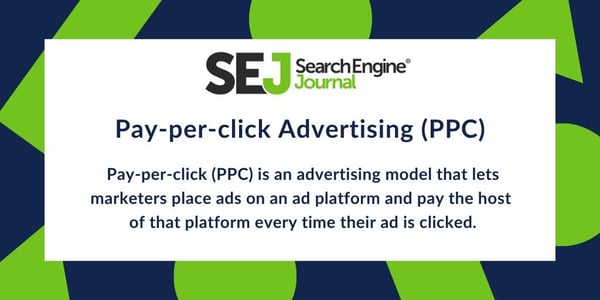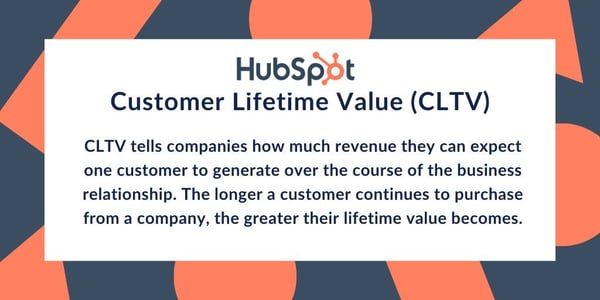Getting results from pay per click (PPC) advertising isn’t easy. It requires experience, expertise, and training. But even if you hire an agency who has all three, you’re still uncertain if pay per click advertising is worth the investment.
Learning more about how PPC can benefit your bottom line will help you determine if it’s worth it. We help companies to make this decision all the time, and we’re going to share the same research process that we use for our clients. By the time you read this entire article, you’ll know whether pay per click advertising is a viable strategy for your business.
What is PPC?
Before you can determine if something will benefit your business, you need to define it correctly. Sales reps from the various platforms use a variety of terms to describe PPC; it’s also called paid search, sponsored listings, display ads, remarketing, retargeting, or pay to play.
Search Engine Journal provides us with an accurate definition:
Price per click varies, depending on several factors:
- The ad platform (Google, Bing, Facebook, LinkedIn)
- The number of competitors bidding on the same keywords within that platform
- The value of a new customer
Before you dive into those scenarios, start with these questions.
What’s the Plan?
If you’re concerned about the ROI generated from a PPC campaign, you need to plan a campaign around generating income for your business. While some large, established companies invest in PPC to build their brand or advertise an event, most companies need to generate revenue from their advertising dollars.
This is where it gets tricky, especially if you’re in the B2B space. If you don’t have an item to sell, how can you generate income from PPC? Keep reading.
What’s the Lifetime Value of a New Customer (CLTV)?
According to HubSpot, a customer lifetime value can be calculated using the following model:
To calculate your CLTV, follow these five steps:
- Divide your company’s total annual revenue by the number of deals or purchases in that year. (average purchase value)
- Calculate the average purchase value by the number of unique customers who made purchases during that year. (average purchase frequency rate)
- Multiply the average purchase value in step one by the average purchase frequency rate in step two. (customer value)
- Next, calculate the average number of years that a customer purchases from your company. (average customer lifespan)
- Multiply the customer value (step three) by the average customer lifespan (step four). This number is your CLTV.
Once you have an estimate for your CLTV, what will you need to “sell” with your ads? A product or service demo? A free trial for a software product? A consultation for a specialized service package? Your website must deliver the information they’re after. It’s a waste of time to deliver your home page to searchers who are looking for a specific service or topic. Which section of your website drives the most valuable leads that relate to the topics and keywords for your PPC campaign? Answers to these questions will help you avoid wasting your time and money on ads that don’t work.
Consider the Acquisition Channel
Now that you have the CLTV calculated, it’s time to identify the right channel for your PPC campaign. Where are your potential customers on the internet? Are they on Google, Bing, LinkedIn, or industry blogs and news sources?
Your marketing team can figure this out for you - once your website is connected to Google Analytics, identifying traffic referral sources is easy. Using data to identify the right acquisition channel will save your PPC budget for the right audience - meeting them where they are.
The Budget
Do you have the budget to run a campaign that will push boundaries and give you time to identify the winning keyword phrases and the right calls to action? While dozens of tools exist to help your marketing team identify the best keywords for your budget, remember, only a user-friendly landing page will convert visitors into leads. It will take a little time and creativity to figure out the right combination.
If you invest in a PPC campaign, give yourself room in the budget to spend money on landing page design, tracking, and follow-up. PPC is not a "one and done" marketing strategy; it takes analysis, strategy, and implementation to yield results. By working with a professional PPC service provider who has experience in the B2B space, you’ll create an online experience that drops potential leads into your lead nurturing campaign, especially if you have a long sales cycle.
So, Is PPC Worth It?
Ultimately, the answer isn’t simple, and it depends on a lot of variables. Your industry, seasonality, the economy, and the PPC marketing team that you choose will determine if it’s worth it. The most important thing you can do before investing in PPC is to answer all of the questions above and discuss it with your prospective PPC marketing team. It will take a conversation to determine if it’s worth it; if an agency is ready to launch your campaign without diving into these questions, look for another.
Conclusion
Even in economically challenging times, investing in PPC as part of your marketing strategy can help leap ahead of your competition. If you begin with a strategic, data-driven PPC strategy and work with a professional marketing team, you’ll get the most value from your PPC campaign.
Still not sure where to begin? Download our free guide: How to Increase Web Traffic, which includes a section for paid advertising:








